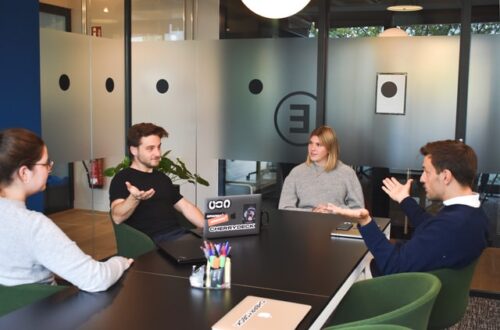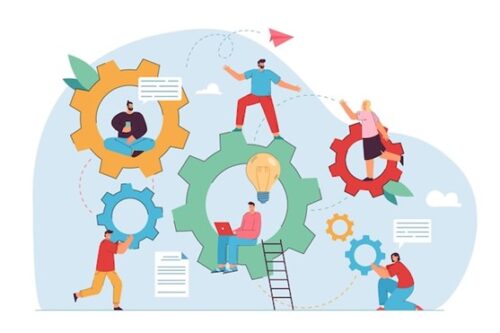In today’s fast-paced and dynamic business environment, effective WHS decision making is crucial for the success of any organization. This is especially true in Melbourne workplaces, where the vibrant and competitive nature of the city demands quick and informed decision making. In this comprehensive guide, we will explore the intricacies of decision making in Melbourne workplaces, highlighting its importance and providing valuable insights into the decision-making process.
The Importance of Effective Decision Making in the Workplace
Effective decision making is the lifeblood of any organization. It is the process through which managers and leaders analyze information, evaluate alternatives, and choose the best course of action to achieve organizational goals. In Melbourne workplaces, where innovation and adaptability are highly valued, the ability to make sound decisions is even more critical.
A well-made decision can lead to increased productivity, improved customer satisfaction, and a competitive edge in the market. On the other hand, poor decision making can result in wasted resources, missed opportunities, and damaged reputation. Therefore, organizations in Melbourne understand the significance of cultivating a culture of effective decision making throughout their workforce.
Understanding the Decision-Making Process
The decision-making process consists of several interconnected stages that guide individuals or groups through the task of making a decision. In Melbourne workplaces, understanding and following this process is essential for making informed and effective decisions.
The first stage of the decision-making process is identifying the problem or opportunity that requires a decision. This involves gathering relevant information, analyzing the situation, and defining the desired outcome. Once the problem or opportunity is clearly defined, the next stage is generating alternatives. This requires brainstorming different options, considering various perspectives, and exploring creative solutions.
After generating alternatives, it is important to evaluate each option based on predetermined criteria. This involves weighing the pros and cons of each alternative, considering the potential risks and rewards, and assessing the feasibility of implementation. Once the evaluation is complete, a decision can be made and implemented. The final stage of the decision-making process is evaluating the outcomes and learning from the experience to improve future decision making.
Factors that Influence Decision Making in Melbourne Workplaces
Decision making in Melbourne workplaces is influenced by a multitude of factors, both internal and external. Understanding these factors can help individuals and organizations make more informed decisions.
Internal factors include individual biases, values, and beliefs, as well as personal goals and motivations. These factors can shape the way decisions are made and the priorities that are considered. Additionally, organizational culture, structure, and communication channels can also impact decision making. A collaborative and inclusive culture, for example, can foster more effective decision making by encouraging diverse perspectives and constructive dialogue.
External factors, on the other hand, include market conditions, industry trends, and legal and regulatory requirements. In Melbourne workplaces, staying abreast of these external factors is crucial for making decisions that align with the organization’s strategic objectives and ensure compliance with relevant laws and regulations.
Common Challenges in Decision Making and How to Overcome Them
While decision making is an essential skill, it is not without its challenges. In Melbourne workplaces, individuals and organizations often face common hurdles when making decisions. However, there are strategies that can be employed to overcome these challenges and make more effective decisions.
One common challenge is the presence of cognitive biases, which can cloud judgment and lead to suboptimal decisions. To overcome this challenge, it is important to be aware of common biases such as confirmation bias or anchoring bias and actively seek alternative perspectives and opinions.
Another challenge is the fear of making the wrong decision, also known as decision paralysis. This can lead to indecisiveness and missed opportunities. To overcome this challenge, it is important to gather relevant information, set clear decision criteria, and trust in the decision-making process.
Another effective strategy is to involve key stakeholders in the decision-making process. This not only ensures diverse perspectives are considered but also increases the likelihood of successful implementation and buy-in from those affected by the decision.
Best Practices for Decision Making in Melbourne Workplaces
To enhance decision making in Melbourne workplaces, it is important to adopt and implement best practices that have proven to be effective.
One best practice is to establish a clear decision-making framework or process that is understood and followed by all members of the organization. This ensures consistency and transparency in decision making, making it easier to evaluate and improve the process over time.
Another best practice is to encourage a culture of learning and continuous improvement. This involves providing opportunities for feedback and reflection on past decisions, as well as promoting a growth mindset that embraces experimentation and learning from failures.
Additionally, fostering open and effective communication channels is crucial for decision making. This includes creating a safe and inclusive environment where individuals feel comfortable expressing their opinions and challenging the status quo.
The Role of WHS in Decision Making
Work Health and Safety (WHS) plays a vital role in decision making in Melbourne workplaces. WHS considerations ensure that decisions prioritize the well-being and safety of employees, customers, and the wider community.
Incorporating WHS into decision making involves assessing potential risks and hazards associated with different options and choosing the course of action that minimizes these risks while maximizing positive outcomes. This can include implementing safety protocols, providing adequate training and resources, and regularly reviewing and updating WHS policies and procedures.
By integrating WHS into the decision-making process, Melbourne workplaces can create a safer and healthier work environment, reduce the likelihood of accidents and injuries, and demonstrate a commitment to the well-being of their workforce.
Decision Making Models and Frameworks Used in Melbourne Workplaces
Melbourne workplaces utilize various decision-making models and frameworks to guide their decision-making processes. These models provide structured approaches that help individuals and organizations make more systematic and informed decisions.
One commonly used model is the Rational Decision-Making Model. This model involves a step-by-step process that includes identifying the problem, gathering information, generating alternatives, evaluating options, making a decision, and implementing and evaluating the outcomes. This model is particularly useful when decisions involve complex and data-driven considerations.
Another popular framework is the Ethical Decision-Making Model. This model incorporates ethical principles and values into the decision-making process. It involves identifying ethical issues, considering alternative courses of action, evaluating the consequences, and choosing the option that aligns with ethical standards and guidelines.
Training and Development Opportunities for Improving Decision-Making Skills
To empower effective decision making in Melbourne workplaces, investing in training and development opportunities for employees is crucial. There are various programs and resources available that can enhance decision-making skills and capabilities.
One option is to provide workshops or seminars on decision-making techniques and strategies. These sessions can cover topics such as critical thinking, problem-solving, and risk analysis, equipping employees with the necessary tools to make better decisions.
Additionally, organizations can offer mentoring or coaching programs where experienced decision-makers guide and support less experienced individuals. This allows for knowledge transfer and the development of practical decision-making skills through real-world scenarios.
Furthermore, leveraging technology can also enhance decision making. Implementing decision support systems, data analytics tools, and predictive modeling can provide valuable insights and assist in making more informed decisions.
Conclusion: Empowering Effective Decision Making in Melbourne Workplaces
In conclusion, effective decision making is a critical skill for success in Melbourne workplaces. By understanding the decision-making process, recognizing the factors that influence decision making, overcoming common challenges, and adopting best practices, individuals and organizations can make informed and effective decisions.
Furthermore, integrating WHS considerations, utilizing decision-making models and frameworks, and investing in training and development opportunities can further empower decision makers in Melbourne workplaces.
By prioritizing effective decision making, Melbourne workplaces can navigate the complexities of the business landscape, seize opportunities, and achieve their strategic objectives.
CTA:
To learn more about effective decision making and how it can benefit your organization, contact us today for a consultation. Together, we can unlock the art of decision making in your Melbourne workplace and empower your team to make informed and impactful decisions.












